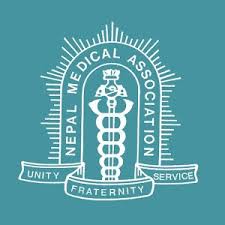Docs oppose Criminal Code; hand over licences to Medical Council
 Kathmandu / Sept 2: The Out Patient Department (OPD) services at hospitals did not operate today after the Nepal Medical Association (NMA) announced a protest over the newly enforced Criminal Code.
Kathmandu / Sept 2: The Out Patient Department (OPD) services at hospitals did not operate today after the Nepal Medical Association (NMA) announced a protest over the newly enforced Criminal Code.
Except for the emergency services, all other services were halted said Dr. Lochan Karki, General Secretary, NMA.
The association staged demonstrations at Maitighar Mandala in Kathmandu and in the District Administration Offices all over the country.
As part of its phase-wise protests, the association will halt all the administrative works at all the health institutions on Monday and will stop admitting patients except for emergency from Tuesday.
On Wednesday, the association will only allow emergency surgeries, followed by a shutdown of all laboratory and radiology services except for emergency cases on Thursday.
From Friday, all medical services including OPD, barring Emergency, would be shut down until the doctors’ demands are met.
Meanwhile, doctors aligned with Nepal Medical Association (NMA) on Sunday submitted around 6000 signatures and their licences to Nepal Medical Council (NMC). The agitating doctors have been demanding the government remove the provision of criminal prosecution from the newly enforced Criminal Code.
A team doctors led by NMA President Dr Muktiram Shrestha went to Bansbari-based office of Nepal Medical Council and handed over their apron, medical licences and signatures to NMC acting president Narayan Bikram Thapa. The agitating doctors boycotted the OPD services across the country on Sunday, affecting the patients.
The Criminal Code that came into effect from August 17 has a provision to impose fine and jail doctor if found guilty of negligence or recklessness while the treating patients. The provision is aimed at curbing negligence and recklessness by doctors.
The Ministry of Law, Justice and Parliamentary Affairs had earlier pledged to amend the provisions. The medical fraternity has announced phase-wise protests over the government’s reluctance to amend the new law.
